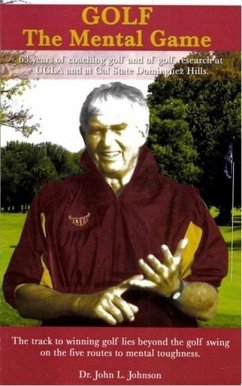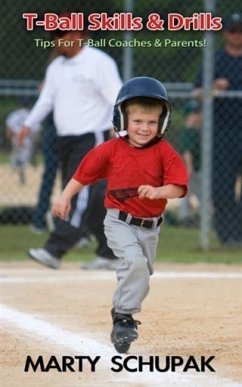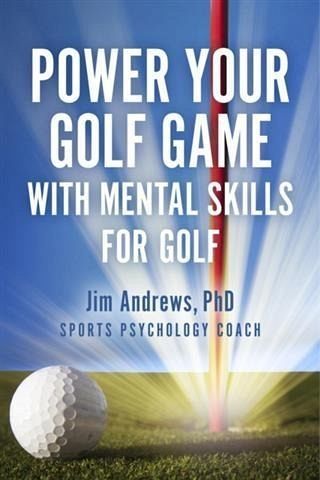
Power Your Golf Game with Mental Skills for Golf (eBook, ePUB)
Jim Andrews, PhD - Sports Psychology Coach

PAYBACK Punkte
8 °P sammeln!
Power Your Golf Game with Mental Skills for Golf by Jim Andrews, PhD is about Performance Psychology for Sports and Corporate Application. Performance Psychology studies the behavioral factors that influence and enhance performance in the sports and business competitive environment. It targets learning the skills and abilities for a player to achieve optimal performance, personal development, and well-being throughout his or her lifespan. Performance enhancement helps the coach, the team, or the organization and its leaders, managers, and teams. The Performance Psychology approach tailors asse...
Power Your Golf Game with Mental Skills for Golf by Jim Andrews, PhD is about Performance Psychology for Sports and Corporate Application. Performance Psychology studies the behavioral factors that influence and enhance performance in the sports and business competitive environment. It targets learning the skills and abilities for a player to achieve optimal performance, personal development, and well-being throughout his or her lifespan. Performance enhancement helps the coach, the team, or the organization and its leaders, managers, and teams. The Performance Psychology approach tailors assessment, skill training, implementation, and evaluation to individuals' or teams' specific needs. Implementation targets two main areas: Performance Management The skills to optimize one's own and others' performance in the competitive environment include: . Self-Confidence . Goal Setting . Motivation . Pressure Inoculation . Mental Rehearsal Self-Regulation The skills to regulate oneself, or to teach self-regulation to others, in a demanding environment. These skills include: . Self-Awareness . Stress Management . Thought Control . Attention/Concentration Control . Attitude Regulation . Anger Management Benefits Learn mental skills and strategies that refine, improve and enhance performance. Learn the mental skills and abilities to achieve optimal performance, personal development, and well-being throughout one's lifespan Samples of Individual Clinics Clinic One: Self-Confidence, Goal Setting and Motivation, and Designing Self-Confidence When self-confidence is lacking, everything is an effort. You doubt yourself; you hesitate, get frustrated, and get angry. Wouldn't it be nice to design self-confidence rather than let it be elusive? Clinic Two: Tension Management and Pressure Management There are optimal levels of tension necessary for peak performance: Too little tension creates a loss of focus; too much tension creates a narrowness of focus - and both types of tension are harmful to performance. Tension can be managed to produce the optimal level for peak performance. Clinic Three: Mental Rehearsal and Strategies Visualization has many forms and several uses. The best way to think about visualization? Use your imagination to "Mentally Rehearse." Mental rehearsal is the process where you imagine your shot in whatever way you can: an image, a feeling, or a thought. If you can use all three in the correct sequence (a "Ritual Strategy"), it is most powerful. Use it to practice your swing in your head, pre- shot shaping, and desensitization to pressure situations. Practicing in your head requires a subjective mental rehearsal of your successful stroke and is 80% as effective as real practice. Clinic Four: Thought Control, Attention, and Concentration Control Imagine being on the first tee and saying to yourself, "Don't hit it in the water." The mind doesn't hear the negative ("don't"); instead, the mind hears only the outcome or the object. Therefore, you have to keep positive outcomes in mind, not only in your visualizations but also in your use of thoughts and especially language. This clinic teaches the use of positive outcomes in thoughts, language, and visualizations. Clinic Five: Surge and Recover through Self Coaching Self-coaching teaches you how to surge when you are in the zone and how to recover quickly when you are heading downward. It is the ability to catch the cues of moving into less-effective performance and to quickly recover to the optimal performance zone. What are the cues? They can be variations in muscle tension and breathing, thought and language usage, or changes in ritual strategies, visualization, and focus. You need to recover quickly when you catch the cues. Dr. Jim Andrews Clinics are available worldwide.
Dieser Download kann aus rechtlichen Gründen nur mit Rechnungsadresse in A, B, BG, CY, CZ, D, DK, EW, E, FIN, F, GR, HR, H, IRL, I, LT, L, LR, M, NL, PL, P, R, S, SLO, SK ausgeliefert werden.




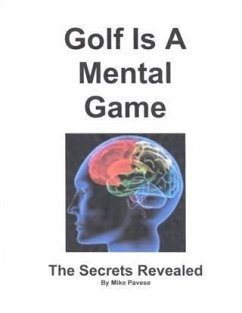


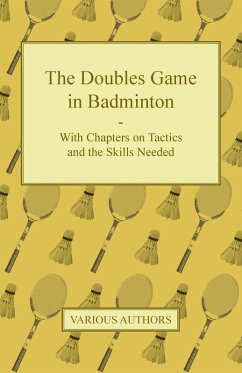
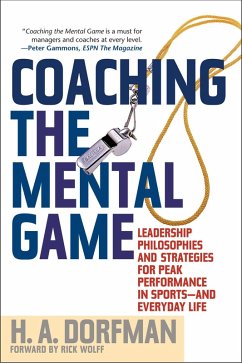
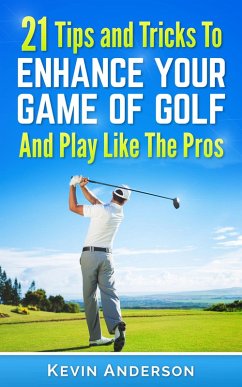
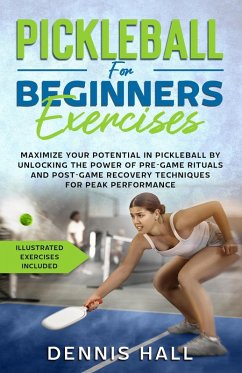
![Pickleball for Beginners: Level Up Your Game with 7 Secret Techniques to Outplay Friends and Ace the Court [III Edition] (eBook, ePUB) Cover Pickleball for Beginners: Level Up Your Game with 7 Secret Techniques to Outplay Friends and Ace the Court [III Edition] (eBook, ePUB)](https://bilder.buecher.de/produkte/64/64553/64553621n.jpg)
